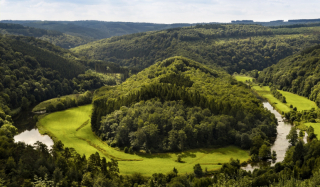
Housing benefits in Wallonia (relocations subsidies, buying, demolition or construction, insulation, double glazing, home move and rental allowanced) are calculated on the basis of your family situation and your income.
There are several internet sites that list all the property advertisements in Belgium together with information regarding contracts, subsidies, insurance and loans etc.
http://www.immo-particulier.be
There are also numerous specialist agencies that can advise and help you when choosing your accommodation.
Regardless of whether you rent or own your home, you are strongly advised to take out home insurance to cover you in case of damage to your home and its contents (fire, water damage or natural disasters, etc.)
The insurance premium you will pay depends on the surface area and the estimated value of the building and its contents.
Renting
If you want to rent a property, you will need to sign a lease agreement with the owner of your home (the landlord). This contract sets out the two parties' rights and obligations as well as the duration of the tenancy and the amount of rent payable. The rent may be indexed once a year if this is what the owner decides in line with movement in the health index.
An inventory must also be drawn up in the presence of both parties and attached to the contract.
Most contracts also allow for a rental deposit which the tenant (the lessee) must pay to the owner to protect the owner should the tenant fail to comply with his obligations This amount, plus interest, is returned to the tenant at the end of the tenancy period with the landlord's written consent.
Buying
Before you start to look for a property, you should consult the banks to find out how much you can borrow and what mortgage rates they are offering.
Once the buyer and the seller agree the terms of the sale, a sale agreement is then drawn up. It is recommended that you consult a solicitor at this stage because this agreement is binding for both parties and serves as the basis for the notarial deed. This deed must be signed within four months of signing the agreement, and legally documents the sale. The solicitor is then responsible for registering the deed.
Buying a property will incur costs:
- land registry fees (these are 12.5% in Wallonia but may be reduced to 6% in certain circumstances for small homes)
- legal fees
- cost of administrative formalities
All owners must also pay an annual property tax. This is a local tax which is calculated on the basis of the land registry revenue.
In Wallonia, this property tax has been set at 1.25% of the land registry revenue (0.8% for property rented as social housing).
Further information about buying or selling a property
Building and renovating
If you plan to build, renovate or extend your home, you must first apply for planning permission from your local authority.
You must consult an architect for all construction work or renovations which require planning permission.
The Wallonia region grants subsidies to help you to build and renovate your home.
Energy
Wallonia will help you to reduce your energy consumption as far as possible and thus minimise its impact on your finances and the environment. Subsidies are also available to install roof insulation in your home, install a heat pump or fit solar panels.
Belgium has a national Energy Performance Certificate (EPC). This is a tool which enables the buyer or tenant to compare objectively the energy performance of buildings on the market. Completing an energy audit can prove highly useful when it comes to filling in the information contained in the certificate.
16 energy desks to answer all your energy-related questions.
Compare all the offers from gas and electricity suppliers in Wallonia.
Social housing
To gain access to social housing, you will need to register with the Social housing society for the region in which you live and comply with certain conditions.







